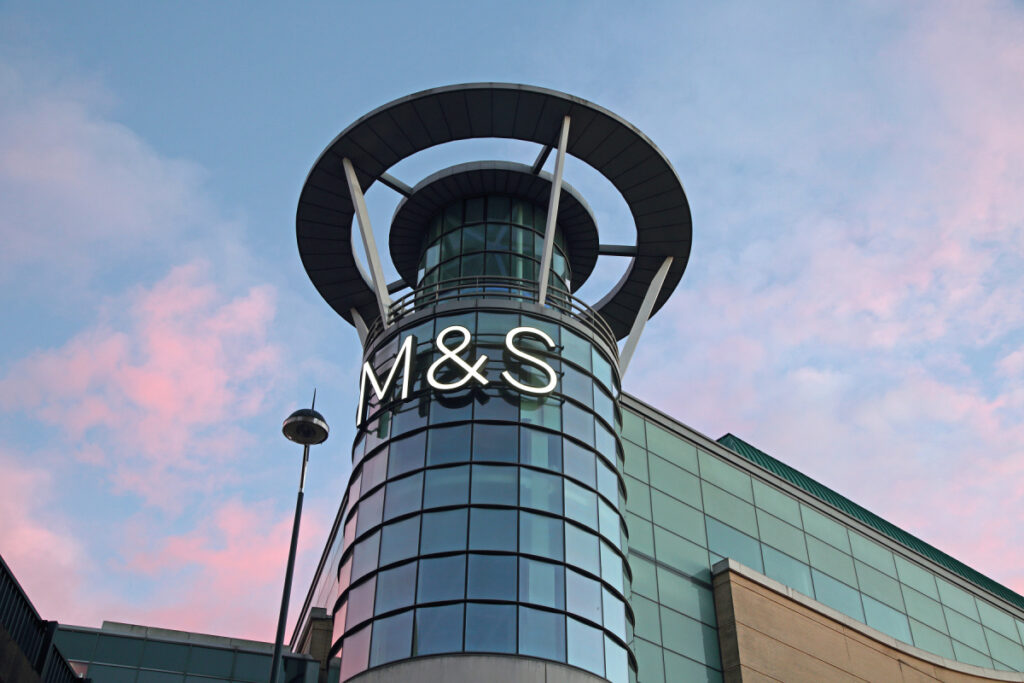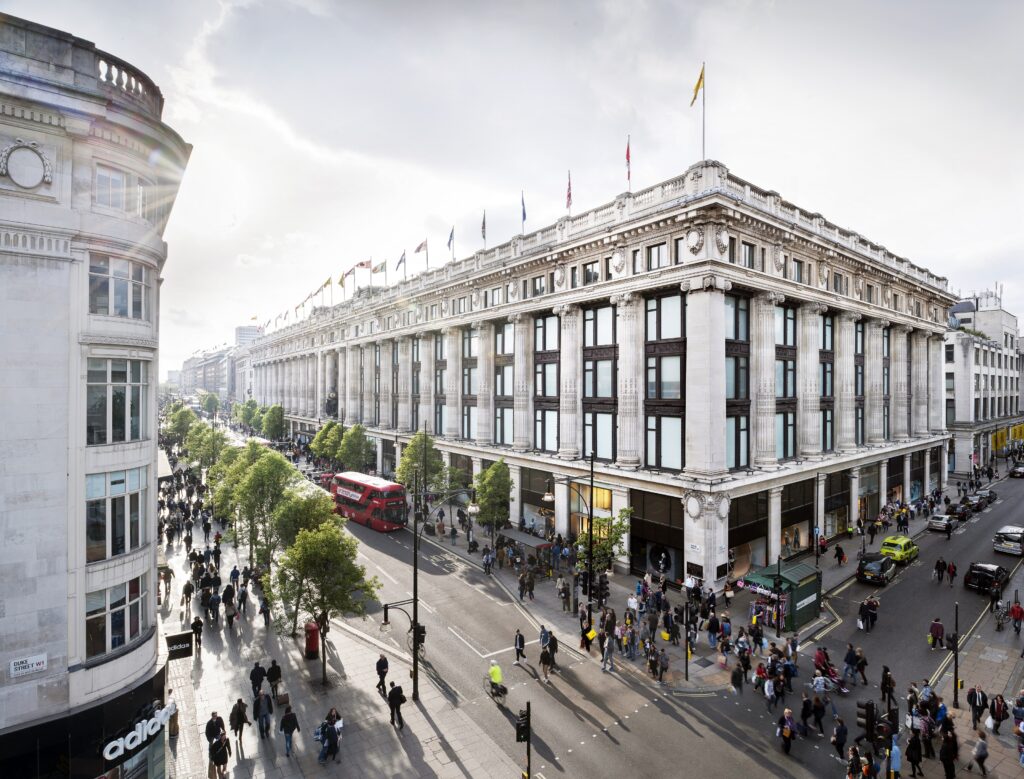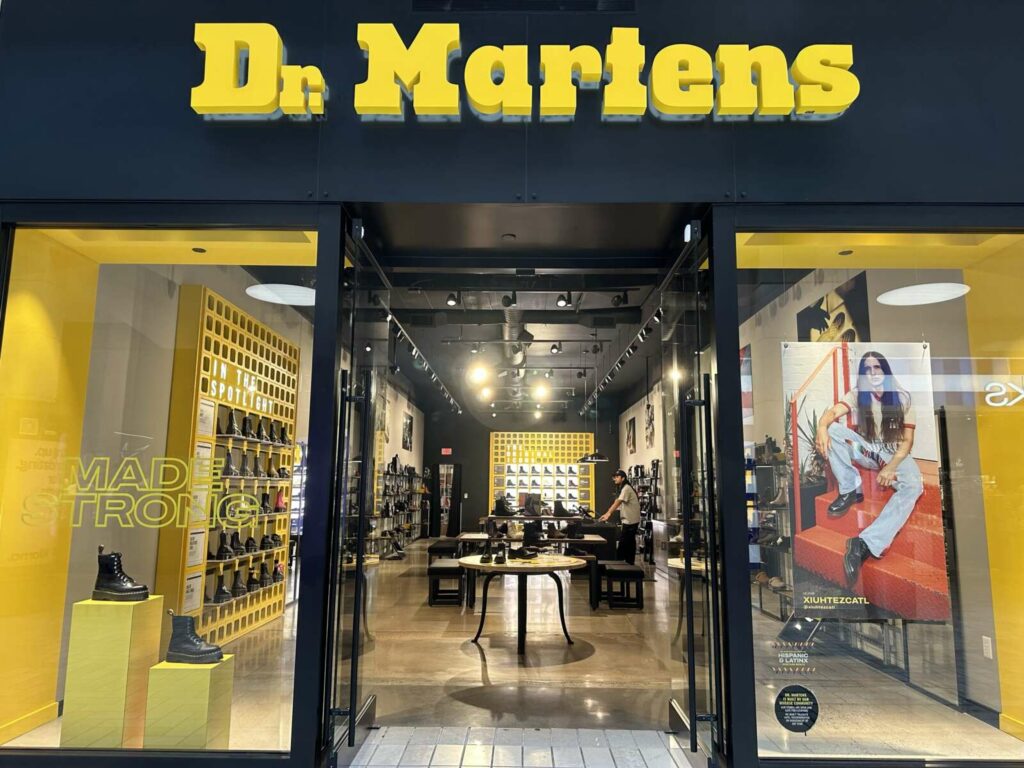“It’s been quite an interesting last four years.”
In the time since joining Timberland as its EMEA senior marketing director in April 2016, Giorgio D’Aprile has since experienced a shift in digital retailing. This has particularly been the case in last eight months or so, thanks to the Covid-19 pandemic.
Under his leadership, Timberland has launched more intense strategies for its ecommerce and bricks-and-mortar stores as it aims to gain more engagement with shoppers. The new consumer targets and brand vision of the footwear retailer includes launching new store concepts, such as the recent flagship opening on London’s renowned Carnaby Street.

“My main marketing strategies go in two directions,” D’Aprile told Retail Gazette.
“One direction is to communicate digitally. Most of these items are digital. We are working on our positioning, and our pillar of products, in which we currently have a strong commitment to a more green future.
“The other direction is creating a movement of consumers around our values. Engaging with our consumers through digital and physical spaces. It’s important to communicate the values through consistent and relevant messages, whether that’s through stores or ecommerce.”
D’Aprile said his expertise comes from a vast career in marketing. Prior to Timberland, he was the brand manager at Swatch Group, before being promoted to global head of marketing of Calvin Klein Watches & Jewellery within the company.
According to D’Aprile, the Timberland team leans towards social media as a tool to generate a “one to one connection” with consumers, whether it’s through Facebook or Instagram, where the brand has millions of followers.
“There are several tools we use to gain customer feedback,” D’Aprile explained.
“We are very active in our social media with daily posting. It’s important to have a one to one connection to gain some insight from our consumers.
https://www.instagram.com/p/CF7K9wVDlnA/?igshid=jtxs22y8o82u
“Our social media channel is a key pillar to understand our consumers,” D’Aprile added.
“The other way we communicate is by measuring our brand. We have researchers that track our brand. They measure the connection and engagement of our consumers in the key markets of Europe.
“It helps us understand the key attributes of the brand. So sustainability, durability, quality and price.
“There are many focus groups that we conduct in our key markets, in particular in Italy, the UK and Germany. Focus groups are a key element for us.
“We did the last one a couple weeks ago in the UK with a group of 16 to 20 year olds to understand how to develop our brand for the youngest generation.”
Timberland currently has over 700 stores across the European market. These include standalone stores and concessions within department stores.
“The European market is probably the most complex market in the world,” D’Aprile said.
“Consistency is key but it is not easy. In Europe, we have 8000 doors, we also consider our wholesale partners. We have completely different channels in terms of distribution from concession to shop in shop to Timberland stores through to digital partners in 80 different countries.

“Achieving consistency of our brand messaging in terms of timing as well as the visual identity of the brand is not that easy.
“It is important to have transparent and constant communication with our distributors and franchising partners because Europe is such a complex market.”
D’Aprile added that despite the change in seasons throughout EMEA, Timberland sells its beloved yellow boots throughout the year.
“Our iconic products including the boots still sell during the summer time, particularly in the UK where the summer season is less intense compared to other markets,” he said.
D’Aprile told Retail Gazette this helps Timberland differentiate from rivals, which are likely to generate sales of boots during the winter season.
“We always have to be ready to change in the case of another pandemic”
“What we tend to see again and again, in particular in the UK, is that the younger generation wear our boots with a completely different style, whether it’s casual or not they will mix and match the boots with the streetwear apparel,” he added.
Similarly to other non-essential retailers, Timberland had to temporarily shut its doors throughout the EMEA region earlier this year due to Covid-19 lockdowns. D’Aprile said trading was “extremely difficult” during this period, as well as shortly after lockdowns were lifted. He admitted he and his team found it difficult to know how to react, considering they had not faced this kind of situation before.
“At the end of April, we sought to face the situation in a very authentic way. We launched a campaign in which we could sell things digitally,” he recalled.
“We also aimed to be more consistent with our messaging about our greener future around sustainability.
“I can tell you in the last three months, we have been performing extremely well.”
D’Aprile added that the pandemic has created the challenge of shifting consumer behaviours, which has led to the marketing team being “as agile as possible”.
“We always have to be ready to change in the case of another similar situation,” he said.
“It’s best to act as soon as possible and to change direction. We have our positioning, but we have to take any change of our consumer expectation in the area in a very flexible way.”
Last month, Timberland entered a three-year sustainable partnership with Westfield London with the launch of a biodiverse Nature Reserve at the shopping centre. The Nature Reserve was designed to feature a range of diverse horticultural areas and forms part of Westfield’s ongoing commitment to the local area.
“It is a natural partnership thanks to Timberland’s environmental stewardship and longstanding heritage in the outdoors,” D’Aprile said.
“The brand leads in sustainability practices and eco-innovation with planting trees and a passion for nature sitting at the heart of everything we do.
“We chose London because it is our key seat in Europe.
“There are the major strengths, in particular with the youngest generation from London.
“Westfield London is also the biggest shopping mall in Europe so we want as many visitors as possible to join and understand what’s behind the Nature Reserve.
“We are going to create workshops with students who will be invited to talk about the biodiversity and the importance of nature.
“Sustainability is important for many reasons. While many retailers have only recently embraced the initiative, Timberland has acknowledged it since 1973.
“We are recognised by our Timberland community that we are very strong in this area.
“The footwear and apparel industry is one of the most polluting industries in the world. So at Timberland, we feel the responsibility to accelerate our sustainability strategies.”
Click here to sign up to Retail Gazette‘s free daily email newsletter

















